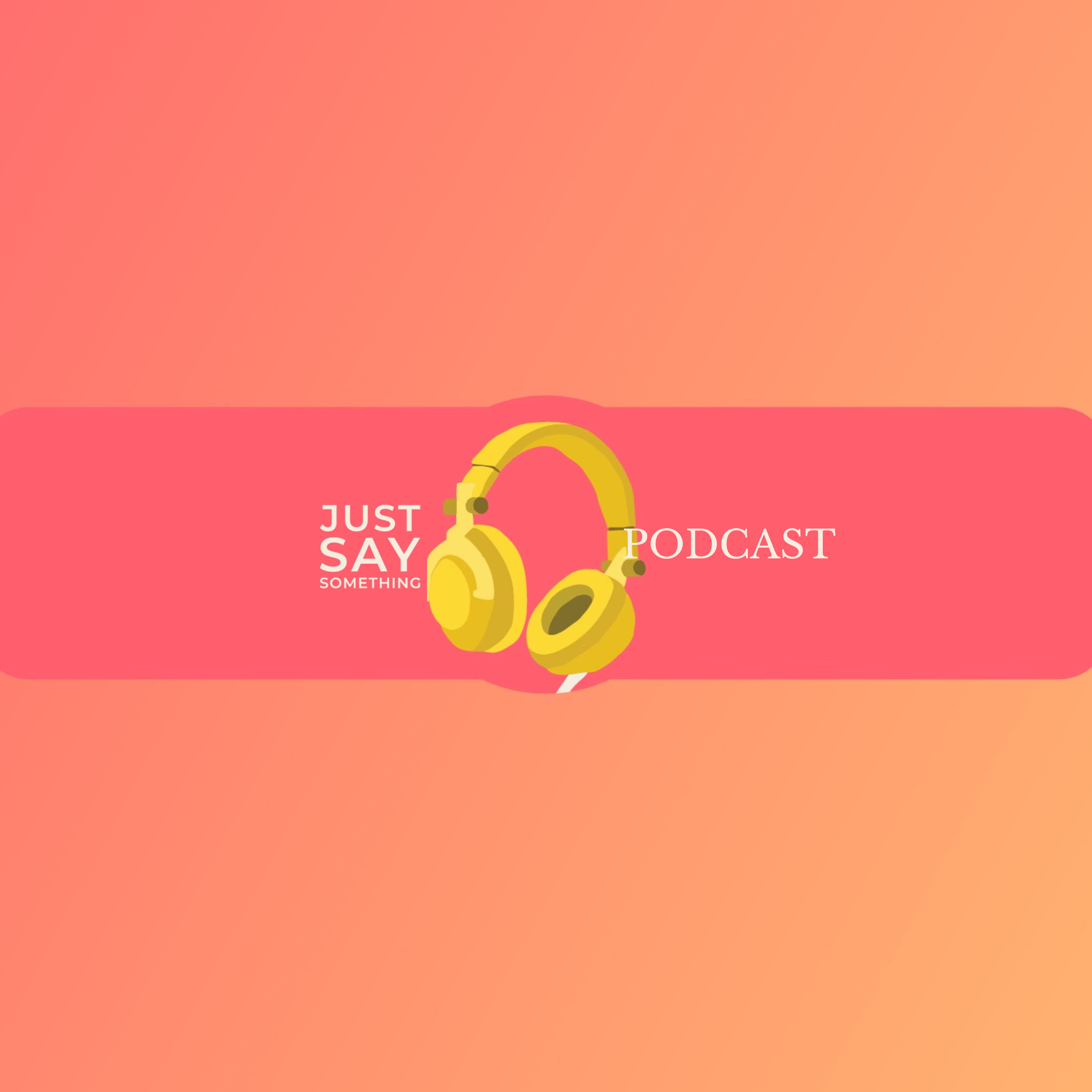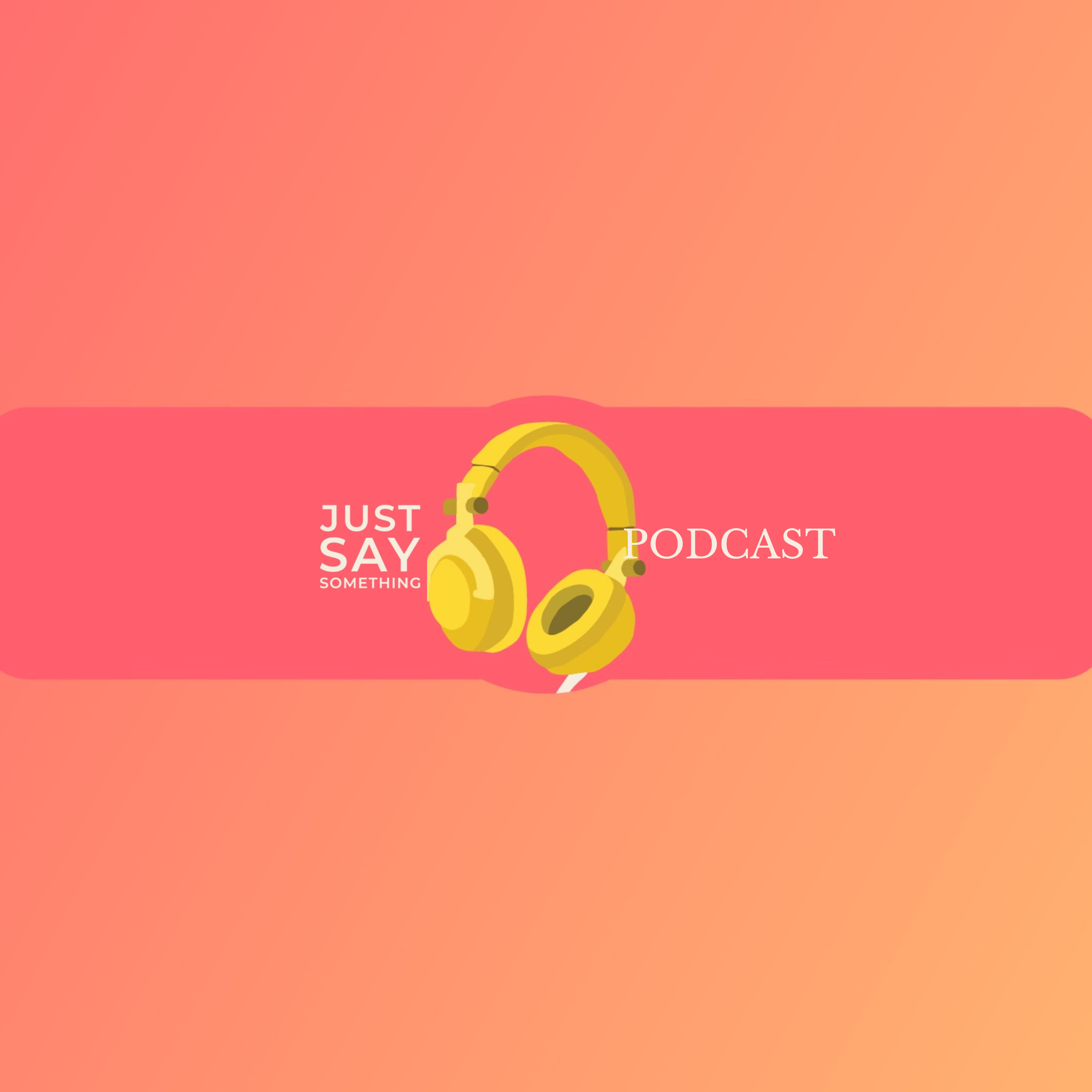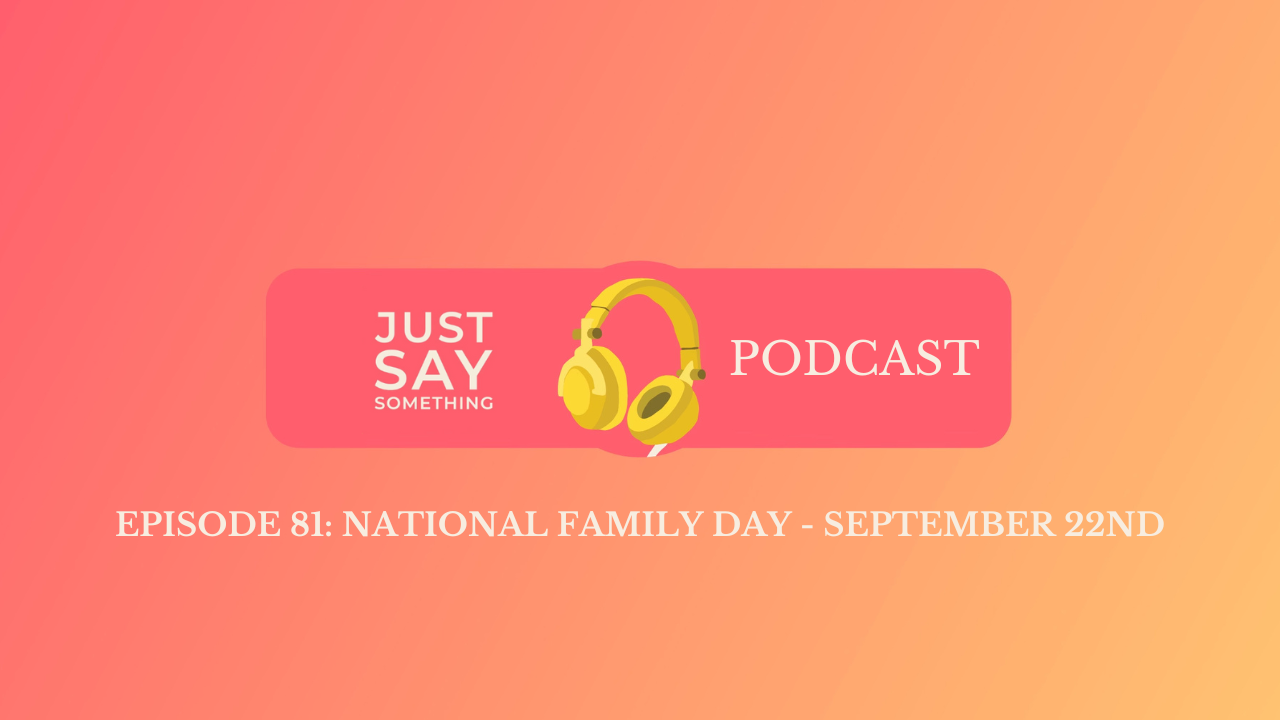Episode Transcript
[00:00:07] Speaker A: Well, hello there, and welcome back to another week of just say somethings weekly podcast. My name is Philip Clark, and I am the director here at just say something. And remember, you can always find us on the World Wide Web. I guess people still say that. Athenae. Oh, I was about to give a previous one, redrivenworks.org. we used to have that. So just say something sc.org. or you can just pick up that old fashioned telephone and give us a call at 864-467-4099 so, as always, we have a wonderful guest with us today, and I would like to welcome Allison Raw Rope.
See, I practiced Ralph, Ralph, Alison, Ralc, and Allison. So I don't mess where you work at. Like I messed up your name. Tell us who you're with.
[00:01:08] Speaker B: Yeah, happy to. And I'm happy to be here. I'm the public information coordinator with Greer CPW. We are a utility provider within the city of Greer, serving both Greenville and Spartanburg counties. We do water, wastewater, electric and natural gas, and we also have two lakes, Lake Robinson and Lake Cunningham. And that's where we get our drinking water from.
[00:01:31] Speaker A: Oh, so CPW is commission of public works, so. And I've always equated that to, oh, well, in Greer, if you live in Greer, you get a, you don't get a water bill or a power bill or a gas bill from somebody else. It all comes from CPW, right?
[00:01:54] Speaker B: That's correct. It's all in one. And we're a package deal. If you live within the city limits or so. It's great. People really like that.
[00:02:02] Speaker A: Okay, cool.
So we are here today to talk about something that's coming up with in our community, not just in Greer, but also elsewhere. But we're focusing on our partnership in Greer today. And it's the drug take back that we do, what, every fall?
[00:02:28] Speaker B: Yes.
[00:02:28] Speaker A: And so tell us a little bit about how long Greer has been participating in this and some of your partners.
[00:02:38] Speaker B: Yeah, absolutely. So I got hired about eight years ago, and the Greer police department was looking for a new location to hold their drug take back day. They do two a year. They do one during their environmental take back day in the spring, and then they also do one in the fall. And so we decided to work with them and do the one in the fall over at our customer service complex. And so for the past eight years, it's been held over at Greer CPW. It has been so successful, we've taken more than 1500 pounds of pills off the streets during these take backs. And so some of our partners are the Greer police department, the city of Greer, Greer CPW, and now, new this year, just say something. And I think that's what's so important about this podcast is the relationships that are built from this. I mean, it started with a conversation at the Greer chamber luncheon, and we said, hey, let's have a conversation about this. And now here we are. Here we are forming partnerships and just strengthening the message of getting these medicines off our streets.
[00:03:45] Speaker A: Right, right. And there's several ways that we're gonna that we can do that, but again, it's collectively that we're coming together to make this happen. So, as we look at the drug take back, what do you take back? And what do you not take back?
[00:04:04] Speaker B: Yep. So we are looking for prescription and over the counter medicines, pills or patches. We also take pet medicine. We cannot accept sharps or liquids. But, you know, people always ask, well, why is a utility company doing this? Why are you working with the police department? And so it's kind of twofold. So the police department, they've told me, well, hey, these addictions, they start at home in grandma's medicine cabinets, and then it builds to something stronger out on the streets. And then for us, we just completely discourage people flushing or pouring medicines down the drain, because what happens is it reaches our wastewater treatment plant, and then we can't do anything with it. It is diluted, and then it gets dumped back down into the South Tiger river, which is a huge detriment to our wildlife future drinking water down in Colombia and the coast, and it ruins the ecosystem. So these drug take back days are a win win for so many people and organizations.
[00:05:08] Speaker A: Right, right. And so recently, with the power collective coming together and us having available our lockable prescription vials that we have, that it kind of goes hand in hand with pill disposal. And so now we're having the conversation about, okay, what does that look like? So, I know that was part of our conversation earlier. I. And it's going to continue to be part of our conversation, because, again, it's one thing to get them off the street, but it's the other thing to get them off the street safe, especially for the environment.
[00:05:50] Speaker B: Absolutely. And I love this. I've actually never seen this until we had our conversation a few weeks ago. This is great. The locking pill bottle. And to be able to put those hands and the people, and I like it how it is a lock, and it feels great in your hands. If you have any mobility issues, there's no issues there. Opening up that lock. I love that and to be able to provide those to the community. What a great resource.
[00:06:14] Speaker A: Right, right. And I'm very excited. We haven't made the big announcement, but by the time this probably airs, we will. But we just received word that we have funding for another 50,000 of these lockable prescription vials that we can hand out to the community for free. So all they have to do to get them for free is check and go to your local drug take back days in October. But also, you can go to our website, powercollectivesc.com. and at the top it says, click here to request the lockable prescription vials. So we're very excited to move forward in this. All right, so we have the drug take back day. You have your. What do you collect them in? What do you, when somebody, if I pull up to your drug take back, what do I, what should I expect?
[00:07:10] Speaker B: Well, it's actually, I tell people it's quicker than your coffee run on a Saturday morning. So when people come out on Saturday, October 26, from ten to two at Greer CPW, it's gonna be like a drive through style. You can stay in your car, you just roll down the window, turn over your medicines, and then we will take care of it. And we have volunteers from the Greer police department, citizens Academy, as well as a police officer who's there. We have some really thick, large bags that we will basically take pill bottles and dump the medicine in there, and we'll collect it, we'll weigh it, and then eventually those are collected with other drug take back days that are happening also on the very same day. And then they are carried to Columbia, where they're burned in an incinerator. And we have found that that is the best way to properly dispose of medicines like that. But like I said, it's quick and easy on a Saturday morning. And then you know that you have cleaned out your medicine cabinet. I cannot tell you. We get some bottles that are dated, and I'm like, whoa, that's got some time on that medicine bottle. It has been pushed to the back, you know?
[00:08:21] Speaker A: Right.
[00:08:22] Speaker B: So clean out those medicine cabinets. Make sure you're reaching back down in the, in the back and make sure you get them all.
[00:08:28] Speaker A: Well, I know even this past weekend, I was cleaning out one of the closets in my house, and I found, I think it was Advil that expired in, like, 2018. And I'm like, yeah, I don't think I'll be taking these. And so I put them in my container that I'm saving for drug take back that I can turn those in.
[00:08:48] Speaker B: You know, I'm looking at my notes here. We had a bottle that had a 1985 date on it, and the medicine had disintegrated so much in the bottom that we couldn't even get it out. And then just the labels, you can tell how old it is. Like, we found a Vicks formula cough medicine that was a cardboard bottle. We turned all of that stuff over to McCluskey Todd pharmacy. It's a local pharmacy in Greer, and they have it in their display case now. But, you know, we take stuff, whether it's that old or it's, you know, 2024, just bring it to us, and we will happily take it.
[00:09:21] Speaker A: And no questions asked. Right?
[00:09:23] Speaker B: No, you don't even have to be a Greer CPW customer, either. Just find a local drug, take back day, and whatever address is the closest for you, no questions asked. That's something that happens a lot. People feel like they need to offer up, like, oh, this was my husband's cancer medicine that didn't work for him, or something like that. Not to say that we don't care about that, but what we care about is taking it out of your hands and properly disposing of it, getting it off the streets and out of the people's wrong hands.
[00:09:52] Speaker A: Right? Right. So tell us, what are some of the other activities that CPW are involved in, in, in the community?
[00:10:00] Speaker B: Sure. Well, we are a not for profit utility, so we take the money that we receive, and we put it right back into the community through our infrastructure as well as other projects. We promote trees upstate because we like to promote. Calling 811 before you dig. Greer relief is a wonderful agency. In Greer, they provide utility assistance to people who may have some trouble paying their utility bills.
Keep one Spartanburg beautiful. Keep Greenville county beautiful. That helps keep the litter off of our streets and also protects our water quality. We put together Lake Robinson day every year, but, yeah, it seems like there's something year round that we also have going on.
[00:10:45] Speaker A: Well, and that's great to always be out there and let the community see you, other than, you know, kind of like police. They see police when something's wrong. A lot of people equate utility up, something's wrong, or they didn't pay their bill or. Or something like that. So it's always a great opportunity to see organizations like CPW out in the community doing good.
[00:11:09] Speaker B: Oh, well, thank you. We really. I personally, that is kind of my job, and I like just being that middleman, if you will, between the customers and the company. And I just like helping people solve their problems when they come with a utility issue. I'm like, well, I don't know the answer, but I know somebody who does. So let me point you in the right direction.
[00:11:27] Speaker A: Right.
[00:11:27] Speaker B: And it. It's just been a great, rewarding career so far.
[00:11:32] Speaker A: Cool. Cool. So, as we bring this to a close, is there so a couple of things. One, let people know how to reach out and touch. How do they get in contact with CPW? And then two, is there one tidbit that maybe we haven't touched on that you would like for our listeners to know about CPW?
[00:11:56] Speaker B: Yeah. Several things related to the event. So if you cannot make the event, there are permanent drop boxes at the Greer police department and Greer Memorial Hospital. They're accessible twenty four seven and they're like a metal mailbox. You pull it open, you put your medicines in there, and then you can't access it anymore. So please, you know, utilize those drop boxes if you can't make it to our event. And then also please mark out any personal information on the side of those bottles with a Sharpie because that medicine bottle is going to be tossed into the trash. So we do not want your personal information. It's also even helpful if you go a step further and maybe put those pills in a Ziploc bag for us. That helps cut down on all of our waste from that event. So keep that in mind. Just a few tips right there, but people can reach out to me. My email address is Allison with one Lalison dot Rauc rauc hriercpw.com. and our website is greer cpw.com. and we're also very active on our social media platforms, Facebook, Twitter, X, and LinkedIn. So you can find us there and just stay involved with our events going on, too.
[00:13:19] Speaker A: Okay, wonderful. We need to make sure we're following all your social media, and you need to make sure you're following all of our social media.
[00:13:27] Speaker B: Happy to do it. I think after our first interaction, I was like, ooh, I've got to go see what they're all about and follow them.
[00:13:34] Speaker A: And we appreciate that.
[00:13:35] Speaker B: Yes.
[00:13:35] Speaker A: You know, it's all about collaborating and working together. And so I appreciate your enthusiasm, your passion for what you're doing, because that's very evident with having you here today and sitting with you and just feeling that energy that you have. So I know that you love what you do, and that's awesome.
[00:13:55] Speaker B: Well, you think about it, you may never know the impact that we have from this one event. I love this event, because this is probably the easiest for me to execute from the setup. It's so basic. You have some tables and chairs and a trash can, but to be able to put these lockable pill bottles in people's hands, you never know the impact that that's going to have in our community. And that gives me chills right here just talking about it. And I think you talk about the collaboration and just working together to have a safer, cleaner community.
[00:14:27] Speaker A: And one thing that we do know that our research tells us is, so last year we had funding and we distributed 30,000 of these. We've just received funding for another 50,000 of these. So if we can win, not if, when we get 80,000 of these dispersed in our area or across the state, within a. In a year, we'll keep four and a half million pills from being pilfered.
[00:15:00] Speaker B: Wow.
[00:15:00] Speaker A: Just by doing that.
[00:15:02] Speaker B: That's amazing.
[00:15:03] Speaker A: And so this is just the tip of the iceberg for us. We have a lot, a lot of things that were wanting to bring to the table, and we will bring to the table, but we just have to make sure they're ready for the community and that we promote them the right way. We're all about keeping our families, our communities, our neighborhoods safe. And so it takes all of us.
And I'll just get off a little bit. But just, you know, like my parents grew up in the mill hill and in the mill hill, mill village, you had everything. You had your schools, your churches, your stores, and so you took care of each other. We're so far removed from that. But as a community, we need to get back to that. And so I appreciate your time here today. Look forward to our working together many, many, many more years.
[00:16:00] Speaker B: Me too.
[00:16:00] Speaker A: And of the difference that we can make collectively.
[00:16:04] Speaker B: I totally agree. I'm excited about October and moving forward and just the impact that we're going to have. It's great.
[00:16:11] Speaker A: Awesome, awesome. Well, stay tuned. Great things ahead. Again, this is Phil Clark with just say something. We can find us on the web, or you can give us a phone call at 864-467-4099 or just shoot me an email. Philip with two l's at just say somethingsc.org. and until next time, we will see you. Stay safe and hope to see you soon.


